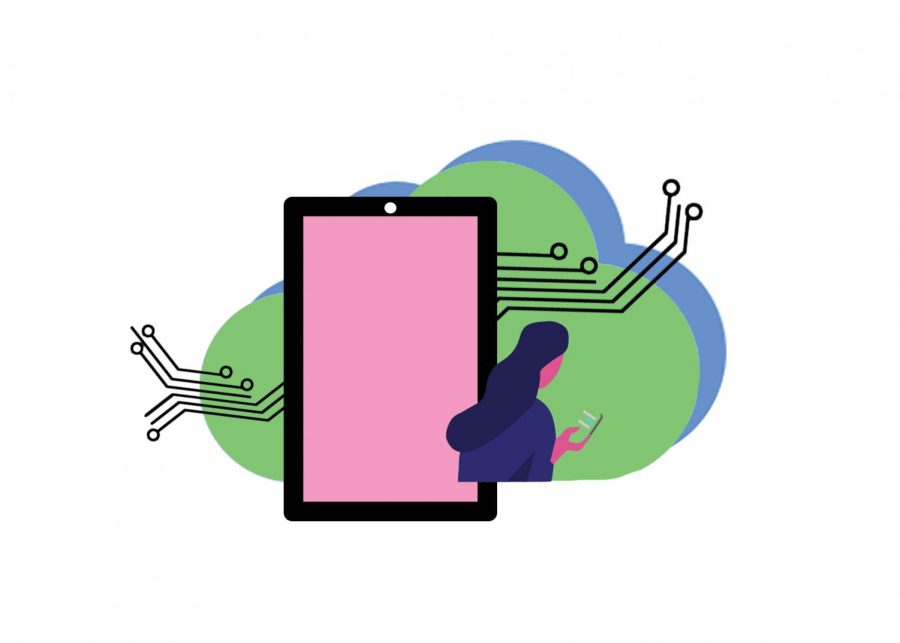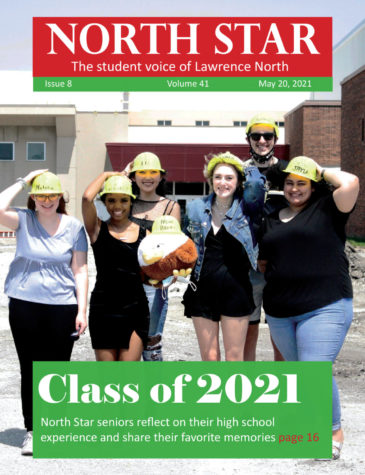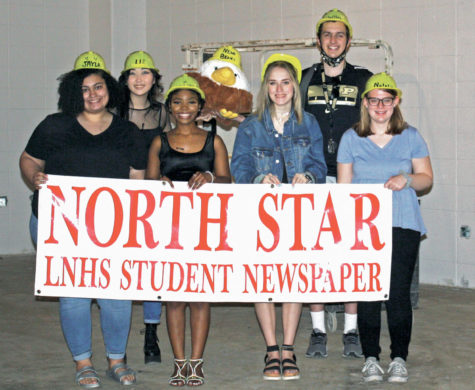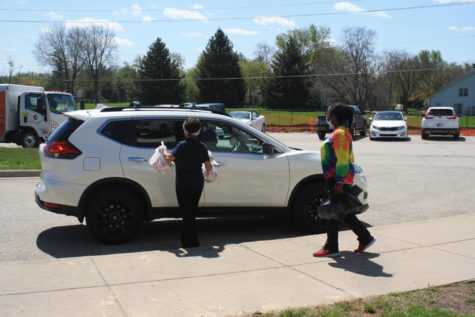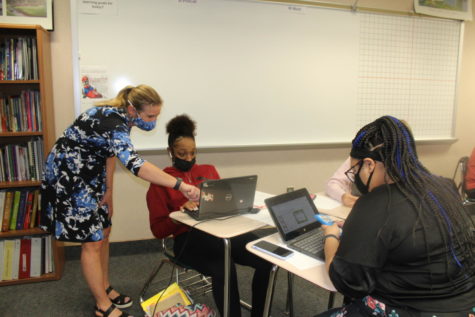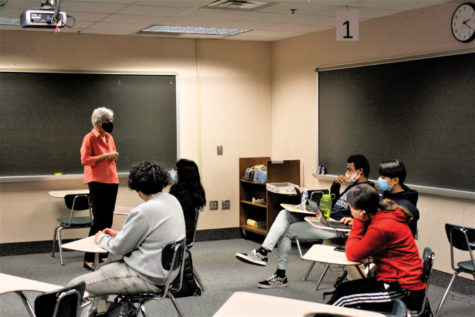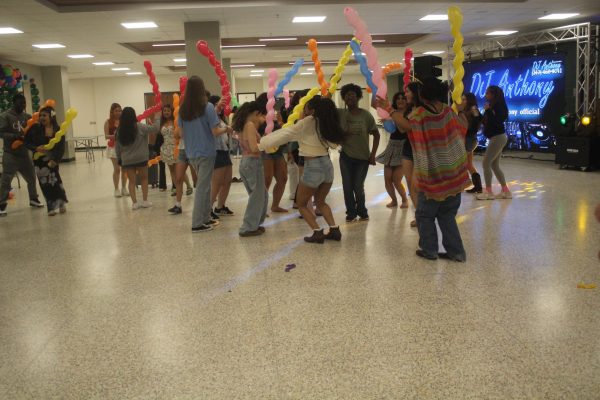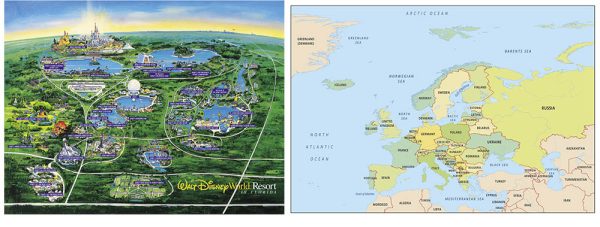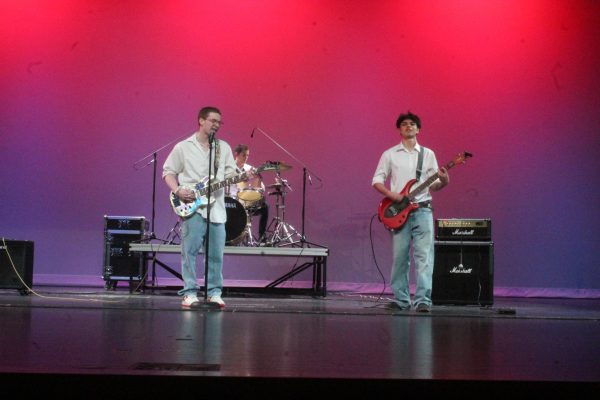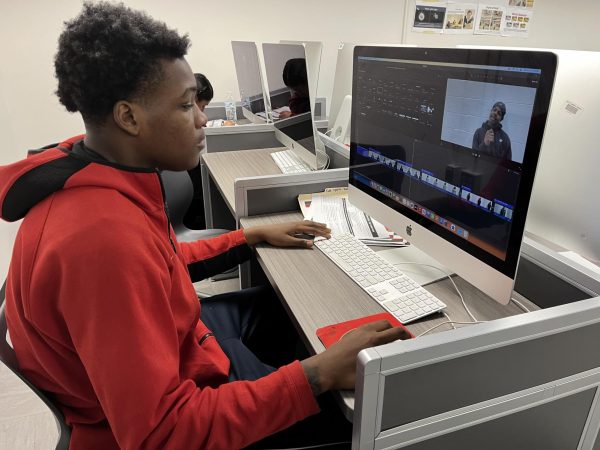Checking the source
Students and teachers discuss the importance of recognizing misinformation and bias in sources
Junior Dominic Ampil is an International Baccalaureate (IB) candidate who relies on accurate information for his research papers and his classes, just like most students at LN. Although the IB program is demanding, Ampil decided to be a part of it to better himself and to open doors for as many opportunities as possible.
“I chose IB because I wanted to challenge my academic potential and push myself to become the strongest student I can be. My end goal is to become a smarter and harder working student who has a wide range of colleges to choose from,” Ampil said.
In order to meet the requirements for the IB diploma, Ampil ensures the authenticity of his sources by doing background research.
“I usually base a source’s validity based on their background, the resources they used to contribute to their story, and their level of recognition. If a source seems biased, misinforming, or has a lack of credibility, then they’re probably not reliable,” Ampil said.
Reliable information is essential for every subject, not just IB courses. As the Principles of Biomedical Sciences teacher at the McKenzie Center for Innovation and Technology (MCIT), Kelly Shoger depends on accurate scientific data and statistics to make informed decisions. She teaches her students how to find trustworthy websites and sources so that they are able to identify falsehoods and become stronger students.
“In our program, we discuss what makes a website reliable and things to look for including: author or publisher, purpose of site, date of information. We look at ways that data can be manipulated with bias,” Shoger said.
However with the advancements in technology and the expanding amount of data and information on the internet, people can easily falsify their credentials and manipulate the facts.
“With technology people can easily manipulate facts and get them to a huge group of individuals,” senior IB candidate Ainee Martin said.
Misinformation is just as acceptable as accurate information is. It can be found on all platforms, but is most potent on social media.
“Misinformation is equally as accessible. False information is often spread on social media today which reaches a large population of viewers who don’t see through the misinformation,” Ampil said.
There are many news stations that are owned by companies and can be influenced by that company’s political beliefs. These stations provide accurate statistics, but only show one side of the narrative that supports the ideologies of their target audience.
“It is important to learn how to fact check and teach those around us how to fact check. There are many sources of information that seem reputable but give information with bias to the public. It takes an educated individual to recognize that and look for unbiased information, which can be much harder to find,” Shoger said.
Biased news and propaganda is something that has been prevalent throughout history. As an AP U.S. History teacher, Rachel Couch recognizes that there are different interpretations of the given facts by different people and that it is important to look at the narrative and what it is supporting.
“Data can be manipulated or show bias so it’s important to look at who is collecting it and for what purpose. In looking at history, there are facts and then there are historical interpretation of those facts,” Couch said.
While there is a large amount of false information circulating the media, there is also a large amount of facts to clarify these falsehoods. Martin believes that since the 21st century is the most technologically advanced that not fact checking is irresponsible.
“People have so many ways to fact check their information, yet they allow themselves to be swept in a web of lies. Not checking the information when you clearly have the ability to is choosing to be ignorant,” Martin said.
Information that is not researched carefully can be misleading. There are multiple sources that seem reliable but support incorrect information.
“I do believe that there is much more information that is not created by properly researched sources and people do not fact check but take it at face value. You can also find sources to support inaccurate view at the click of the button. You can find information supporting the flat earth society in seconds but that does not make it true,” Couch said.
In Ampil’s opinion, everyone has the ability to seek accurate information, it just depends on whether or not they are willing to look.
“We choose whether or not to be informed or ignorant. We live in a world where the truth is always accessible, if we are willing to seek it. Those who are ignorant allow for misinformation to fool them by choosing to deny the search for an authentic picture,” Ampil said.



